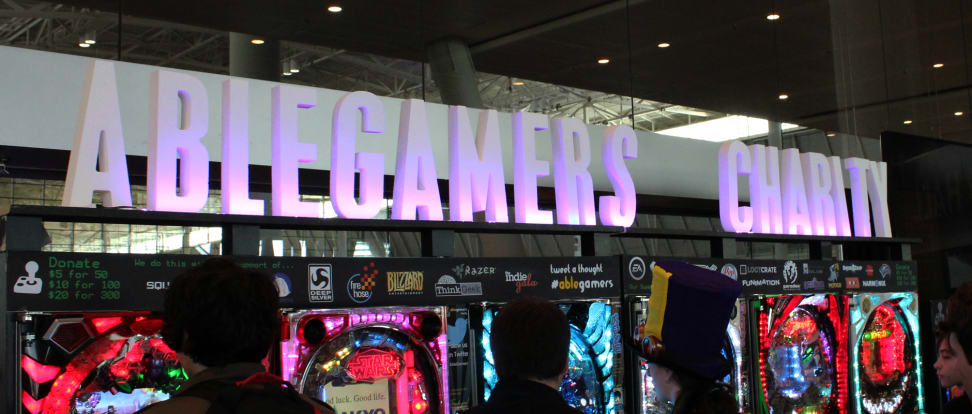Enabling Disabled Gamers Through Pachinko
Charity organization brings a taste of Japan to PAX.
 Credit:
Credit:
Products are chosen independently by our editors. Purchases made through our links may earn us a commission.
Perhaps it's not surprising to see a row of pachinko machines at PAX East—Gambling machines are games, after all. Resembling vertical pinball machines, they're like the Japanese version of slot machines, but smell less like cigarettes. They serve more than just simple entertainment at this event, though.
Run by The AbleGamers Foundation, all proceeds from the pachinko machines go to its charity, which is focused on developing and providing assistive input devices to disabled gamers. When asked why pachinko, AbleGamers told us the machines were unique, eye-catching, and simple—the perfect way to get convention-goers' attention.
AbleGamers works with video game controller manufacturers to create and produce customizable controllers capable of reading different kinds of inputs. One example they had on display at PAX East was a standard XBox 360 controller that had some buttons remapped to touch-sensitive pads, foot pedals, and mouth controls—specifically designed so that a one-handed gamer could continue to enjoy their favorite hobby.
{{photo_gallery "AbleGamers Gallery"}}
The Foundation consists of the largest community of disabled gamers, pooling advice and experience into an award-winning 50-page document meant to guide game developers in making video games as accessible as possible. Through fundraising efforts such as the pachinko machines at PAX East, AbleGamers also hosts a grant program to pay for assistive input devices for disabled gamers.
As a non-profit public charity staffed completely by volunteers, AbleGamers boasts that $0.92 of every dollar donated goes directly to its related projects. The Foundation provides data and expertise, but partners with manufacturers like Evil Controllers for the hardware.
AbleGamers advocates video games as a way for disabled people to maintain mental and emotional health. Living with a disability is tough, and distractions are always welcome. Through its efforts, these individuals aren't denied access to one of the world's most popular hobbies.
